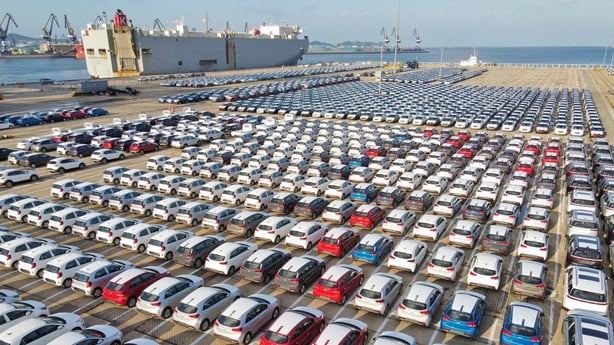While some leading car industry bosses are predicting a massive surge in electric sales in the next eight years, one says the industry can't sustain the pressure to meet that challenge.
Motor industry executives expect electric vehicles will make up just over half of new vehicle sales in the United States and China by 2030, and could do so without receiving government subsidies, according to a new survey by accounting and consulting firm KPMG, as reported by Reuters. Many believe electric cars will soon reach price parity with diesel and petrol cars because of an expected fall in battery prices over the coming years.
But combustion vehicles, including hybrids, are expected to retain a significant share of most major vehicle markets for years to come, according to the latest annual survey of 1,000 auto industry executives.

However, the head of one of the world's biggest car companies, Stellantis, which owns Fiat, Opel, Peugeot, Citroen and Jeep, among others, has warned that the costs of the electrification race are beyond the limits of what the industry can sustain.
Carlos Tavares said external pressure on automakers to accelerate the shift to electric vehicles potentially threatens jobs and vehicle quality as producers struggle to manage the higher costs of building EVs.
Governments and investors want car manufacturers to speed up the transition to electric vehicles, but the costs are "beyond the limits" of what the auto industry can sustain, Tavares said in an interview at the Reuters Next conference this week.
Automakers could charge higher prices and sell fewer cars, or accept lower profit margins, Tavares said. Those paths both lead to cutbacks. Union leaders in Europe and North America have warned tens of thousands of jobs could be lost.
Automakers need time for testing and ensuring that new technology will work, Tavares said. Pushing to speed that process up "is just going to be counter productive. It will lead to quality problems.
The speed at which car makers can phase out combustion engines and the carbon dioxide they emit is a pivotal issue for the global automotive industry. A group of automakers and countries signed a statement after the Cop conference in Glasgow calling for the phasing out of petrol and diesel engines by 2040, and by 2030 in richer countries.

But the world's two largest automakers by sales, Volkswagen and Toyota and three of the world's biggest vehicle-buying nations - China, the United States and Germany - did not sign on.
The KPMG survey of auto industry executives found that they believe that electric vehicles will account for 52% of sales by 2030 in the United States, China and Japan, with lower percentages for Western Europe, Brazil and India. But behind those aggregate forecasts, industry executives have widely varying views.
For China, some auto industry executives expect EV sales by 2030 to be less than 20% of the market, while others believe the world's largest market could be 80% electric by then.
Electric vehicle sales around the world have been fueled so far by government subsidies. But 77% of the respondents to KPMG's survey said electric vehicles can achieve mass adoption within ten years without government aid as battery costs drop to parity with petroleum-fueled engines.


